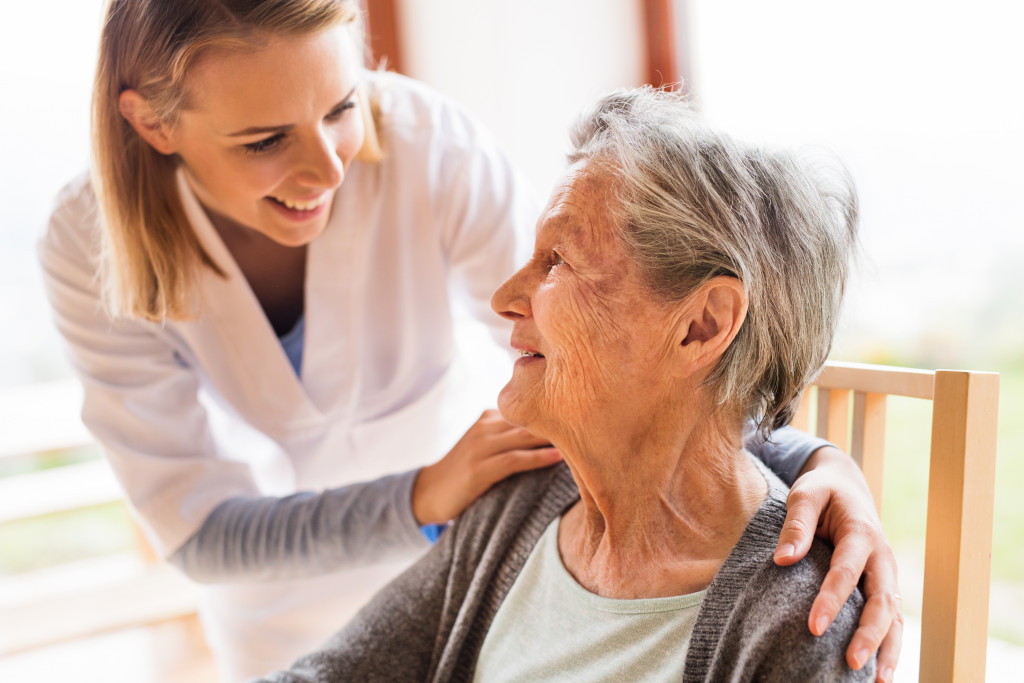Depression is, unfortunately, very common among older adults. Death of loved ones, mobility issues, children moving away, and other factors lead to loneliness and social isolation. As a result, around one in five older adults over 54 suffer from mental health concerns. If left unaddressed, it can lead to suicide.
Older adults account for 18 percent of deaths due to suicide across the United States. The rate of suicide is particularly higher among elderly men aged 85 and above.
A higher risk of illnesses is a natural part of aging. Being over 65 is a risk factor for cardiovascular disease, neurodegeneration, and certain cancers. However, depression should not be a normal part of aging. It can be prevented, and home care workers can help.
Issues That Surround Geriatric Depression
Issues concerning mental health seem to be more common among seniors who reside in houses that employ home care services. A study conducted in 2016 analyzed the data from 30,000 home care patients. It discovered that the prevalence of mental health disorders, particularly anxiety and depression, is as high as 40 percent.
However, only a small portion of those who have been seen struggling with mental health conditions are getting the help they need. The same study revealed that only a third of seniors included in the study receive mental health support.
Different factors prevent the elderly from receiving mental health services. Few older adults will admit that they struggle emotionally, leaving seniors undiagnosed mental health conditions. The symptoms of depression such as lack of energy, restlessness, fatigue, trouble remembering details and making decisions, digestive problems, loss of interest in hobbies and once pleasurable activities, irritability and mood swings, and appetite loss are more often dismissed as a normal part of aging or misdiagnosed as an early sign of dementia.
Moreover, those who notice signs of geriatric depression are not equipped to address the problem. Another study asked home care assistants the barriers preventing them from helping patients experiencing mental health conditions.
Home care services are understaffed and overburdened. There are not enough opportunities for workers to exchange information and advice. Even if they may notice signs of depression, such as unopened food boxes and empty bottles of wine, their strict timetable leaves them zero time to intervene.
This is why it is necessary to find the right housing arrangement for seniors. It is not enough to choose to enter an elderly loved one into a nursing home or allow them to live independently within a retirement community. Having a career who knows how to spot or address mental health conditions could save the life of an aging family member. Senior placement advisors will evaluate your loved ones and recommend the right living arrangement for them.

Diagnosing Depression Among Seniors
Depression can have both biological and psychological causes. Those who have a family history of depression are at a higher risk of experiencing symptoms of mental health conditions. However, the current lifestyle of the senior, as well as a major life event such as the death of a loved one or moving into a nursing home, can also lead to depression.
The key to addressing geriatric depression is to watch out for signs and symptoms. Depression among seniors is not that different from depression experienced by the rest of the population. The mental health condition presents itself through persistent sadness, hopelessness, worthlessness, guilt, and irritability. They also will become more withdrawn from social interactions, including with family and long-time friends. Seniors who are either sleeping too much or not sleeping enough could also suffer from depression.
The most telling signs of depression are thoughts about suicide and suicide attempts.
If your senior loved one has at least one of these symptoms, and they last for more than two weeks, it is time to talk to a mental health professional. Family members should never ignore these warning signs because, if it is not depression, it could be another health condition left undiagnosed.
Seniors who have depression would be prescribed medication or be advised to undergo therapy. Their family members can support their treatment by frequent contact or visiting the senior more often, providing a shoulder to cry on, and encouraging them to exercise and eat a balanced diet every day.
Geriatric depression is very common, and it is deadly. Those who do not get the help and support they need are at risk of suicide. However, it should not be that way. There are plenty of things that can be done to prevent seniors from dying prematurely from depression.

